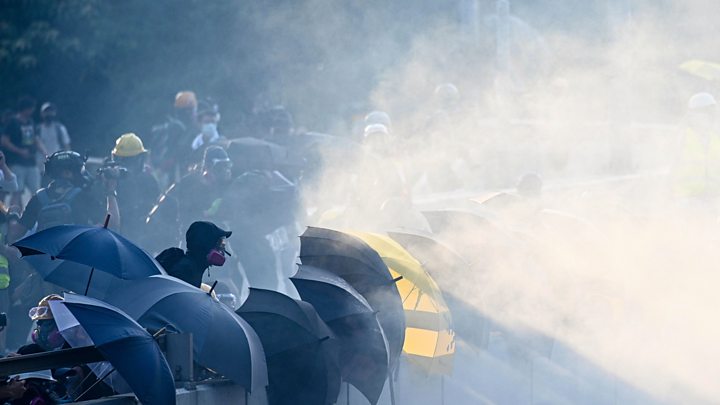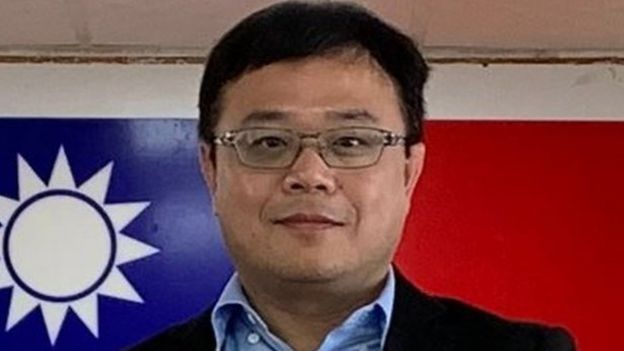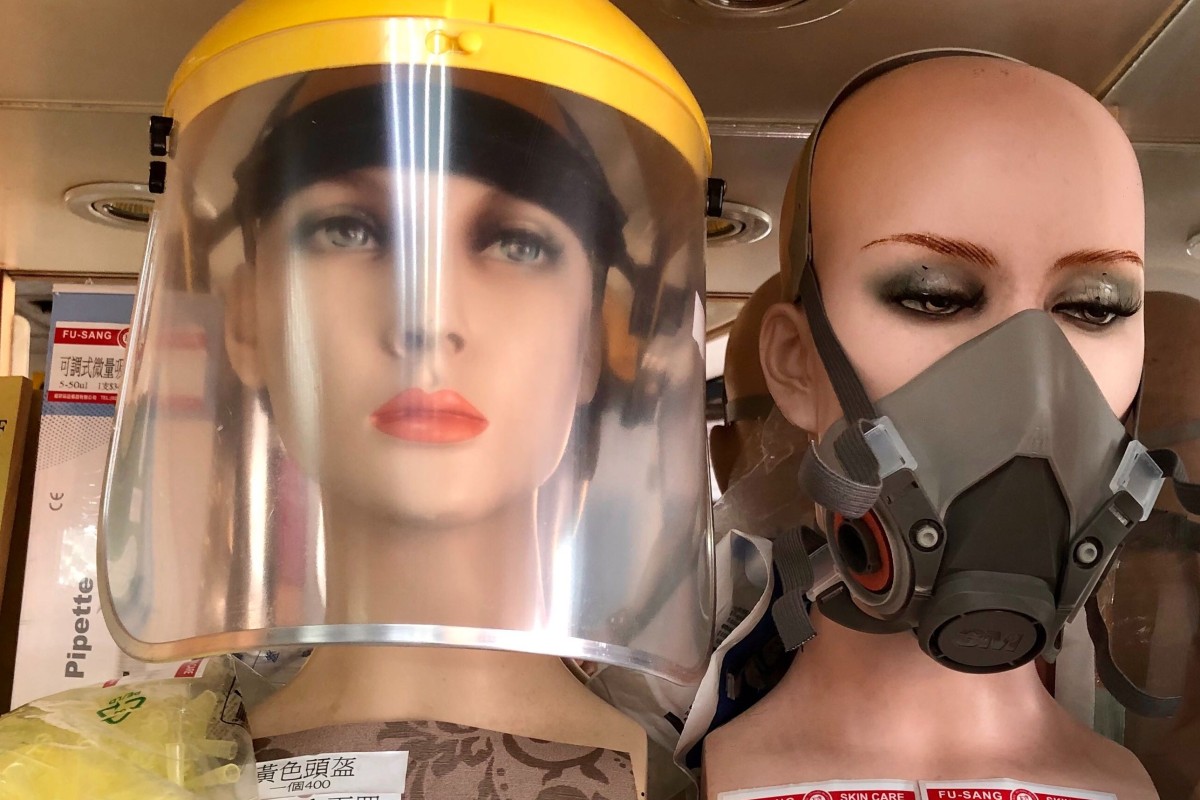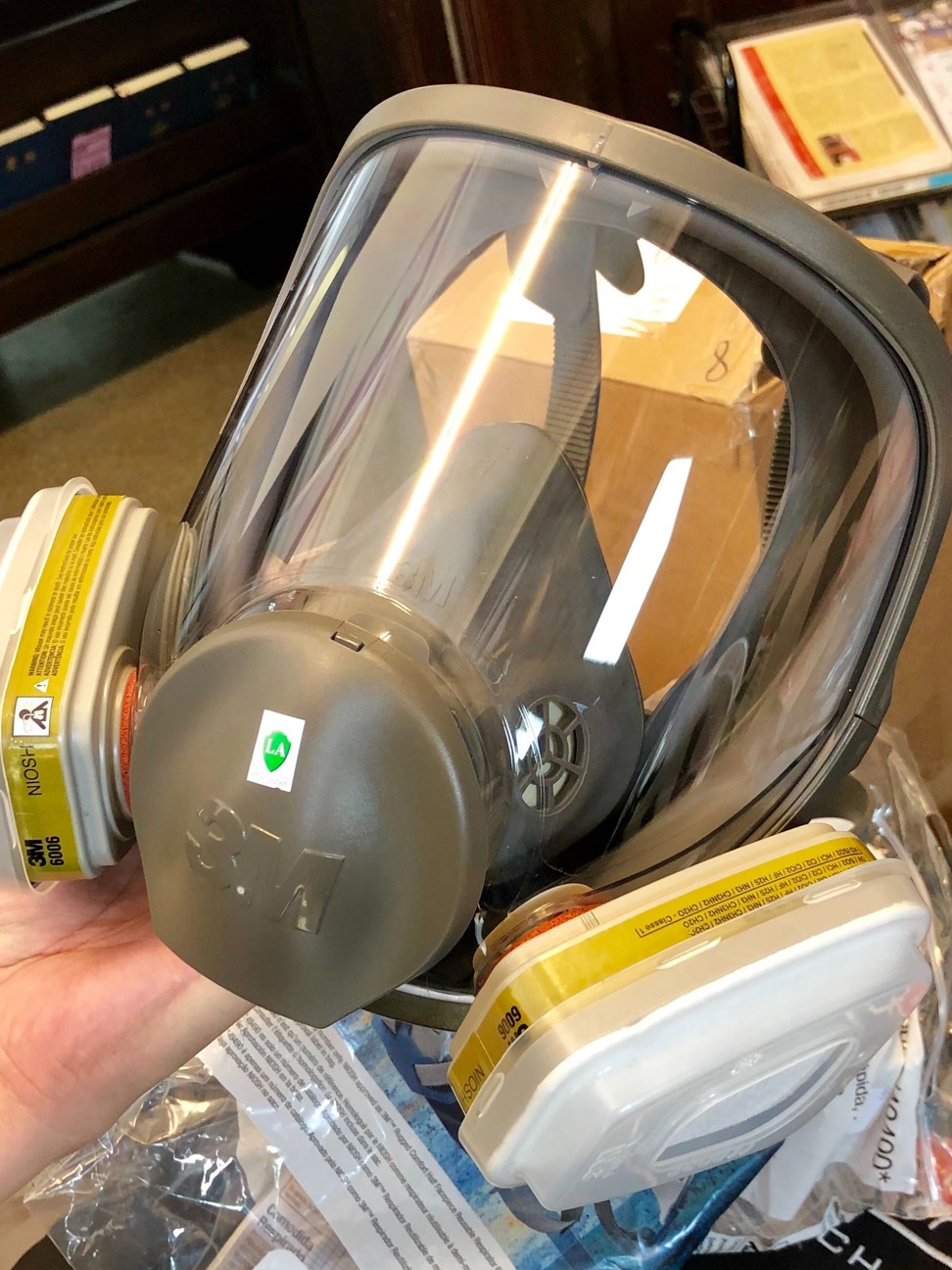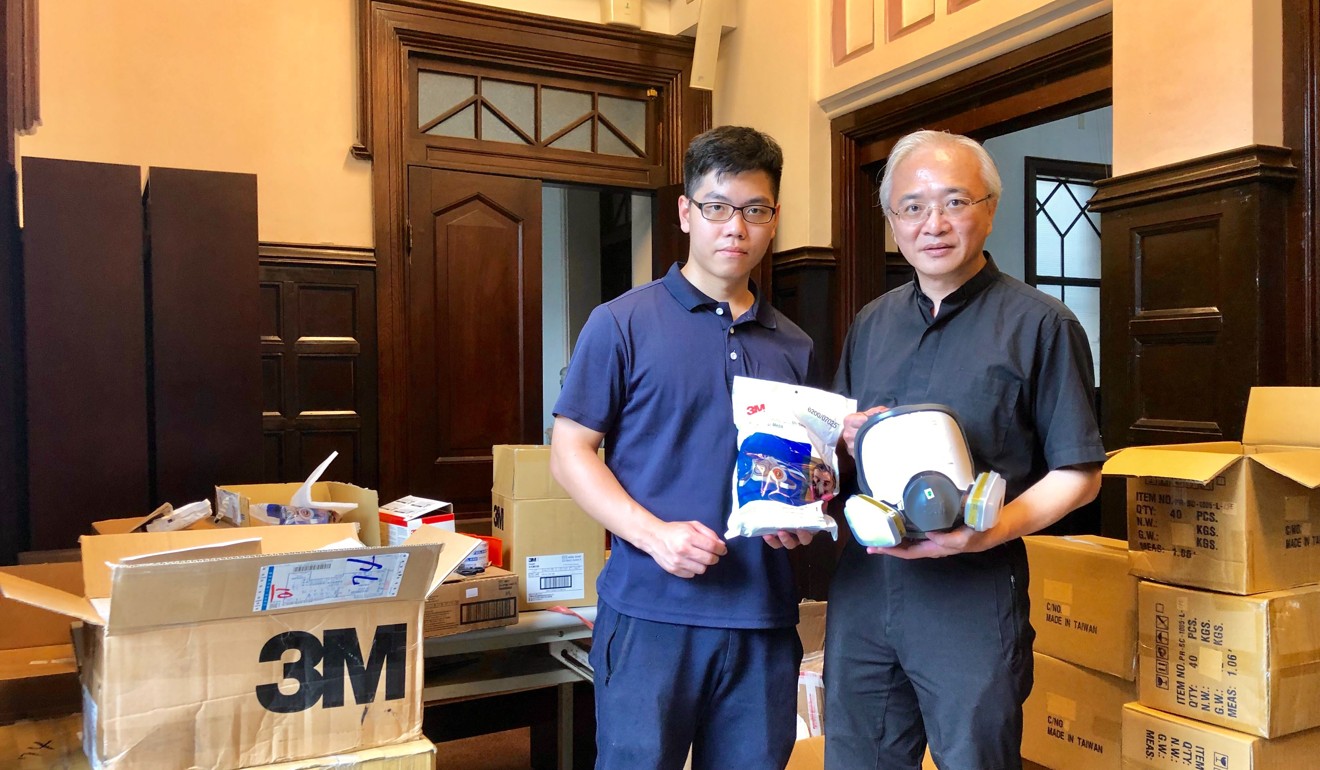Hong Kong protesters gear up at 'National Calamity Hardware Store'
By Jessie Pang
Keita Lee, 33, owner of the "National Calamity Hardware Store" poses at his shop in Hong Kong, China, September 27, 2019.
HONG KONG -- While months of anti-government protests have taken a toll on Hong Kong businesses, from luxury retailers to hotels and restaurants, Keita Lee’s pop-up stall is thriving.
Since demonstrations escalated in mid-June, Lee, 33, has been running what he has dubbed the National Calamity Hardware Store, selling protest essentials -- hard hats, gas masks and goggles -- near rally hot spots.
Part-entrepreneur, part-activist, he has taken out short-term leases on storefronts in at least four districts, shifting to evade police and hostile landlords.
“I’ve never had a business like this before. It’s insane,” Lee told Reuters in his latest shop in the gritty district of Cheung Sha Wan on the Kowloon peninsula.
Hong Kong’s government invoked colonial-era emergency laws last week, including a ban on face masks, which have been widely used by protesters to hide their identities.
Lee dismissed any suggestion the regulation would hurt his business, saying more protesters had come to his stall.
“The legislation of the anti-mask law only intensifies the social conflict,” he said.
“If the government can invoke emergency powers to pass certain laws or ordinances, they can use it to pass other unreasonable bills recklessly.”
‘HONG KONG HAS A FREE MARKET’
Protests against a now-withdrawn extradition law that would have allowed suspects to be sent to mainland China for trial, have evolved into a broader fight for greater democracy, plunging Hong Kong into its biggest political crisis in decades.
Most weekends, black-clad protesters throng the streets in demonstrations that have increasingly descended into violent clashes with police, who often fire tear gas and rubber bullets to disperse crowds.
Protective equipment has become harder to find, since the Chinese government restricted sales and exports of safety equipment into Hong Kong.
“The legislation of the anti-mask law only intensifies the social conflict,” he said.
“If the government can invoke emergency powers to pass certain laws or ordinances, they can use it to pass other unreasonable bills recklessly.”
‘HONG KONG HAS A FREE MARKET’
Protests against a now-withdrawn extradition law that would have allowed suspects to be sent to mainland China for trial, have evolved into a broader fight for greater democracy, plunging Hong Kong into its biggest political crisis in decades.
Most weekends, black-clad protesters throng the streets in demonstrations that have increasingly descended into violent clashes with police, who often fire tear gas and rubber bullets to disperse crowds.
Protective equipment has become harder to find, since the Chinese government restricted sales and exports of safety equipment into Hong Kong.
This has made Lee even more determined to keep his business going.
“Hong Kong has a free market. I am running the business without violating any law. We only announce our pop-up address one hour before we open the stall so it’s almost impossible for the police to obtain a search warrant in time,” he said.
Lee says his stall has been a constant target of the police and he has been arrested twice.
Police said in a statement to Reuters that a 33-year-old surnamed Lee, and five others, had been arrested on Sept. 30 on charges including possession of offensive weapons and inciting and taking part in unauthorized assemblies.
“Hong Kong has a free market. I am running the business without violating any law. We only announce our pop-up address one hour before we open the stall so it’s almost impossible for the police to obtain a search warrant in time,” he said.
Lee says his stall has been a constant target of the police and he has been arrested twice.
Police said in a statement to Reuters that a 33-year-old surnamed Lee, and five others, had been arrested on Sept. 30 on charges including possession of offensive weapons and inciting and taking part in unauthorized assemblies.
They were released on bail.
Lee denies the charges.
He says it is a constant challenge to find new suppliers in Southeast Asia, Taiwan and the United States.
Lee denies the charges.
He says it is a constant challenge to find new suppliers in Southeast Asia, Taiwan and the United States.
‘FIGHTING FOR FREEDOM’
Lee’s political views go further than some other protesters opposed to what they see as the erosion of Hong Kong’s autonomy and freedoms by China’s Communist Party leaders.
He openly backs independence for the territory, a taboo topic for Beijing.
“Independence can’t be finished within our generation. It will take a few generations,” he said.
“Independence can’t be finished within our generation. It will take a few generations,” he said.
Although Lee no longer protests on the front lines, he is sympathetic to the young activists and often offers discounts to hard-up customers.
“If we want to rebel against the authoritarian regime, we should do it without thinking about the price. At most, I will apply for bankruptcy. If we lose this fight, we will lose a few generations’ freedom,” he said.
Lee says his work keeps him busy at all hours and he snatches a few hours of sleep when he can.
“The only regret I have is that I don’t have time to spend with my seven-year-old daughter and five-year-old son,” he said.
“I hope they will understand one day that I’m fighting for their freedom.”
“If we want to rebel against the authoritarian regime, we should do it without thinking about the price. At most, I will apply for bankruptcy. If we lose this fight, we will lose a few generations’ freedom,” he said.
Lee says his work keeps him busy at all hours and he snatches a few hours of sleep when he can.
“The only regret I have is that I don’t have time to spend with my seven-year-old daughter and five-year-old son,” he said.
“I hope they will understand one day that I’m fighting for their freedom.”
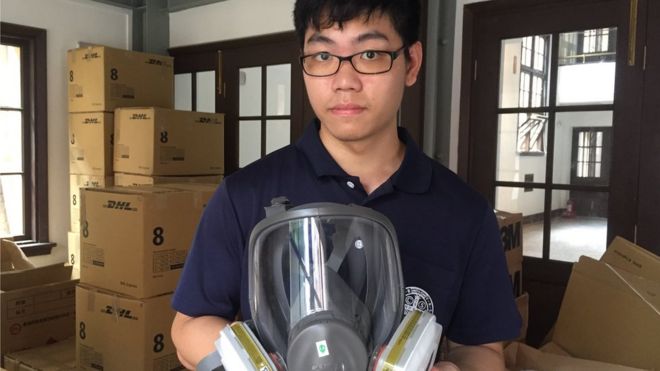 Alex Ko holding a gas mask in a church storage room
Alex Ko holding a gas mask in a church storage room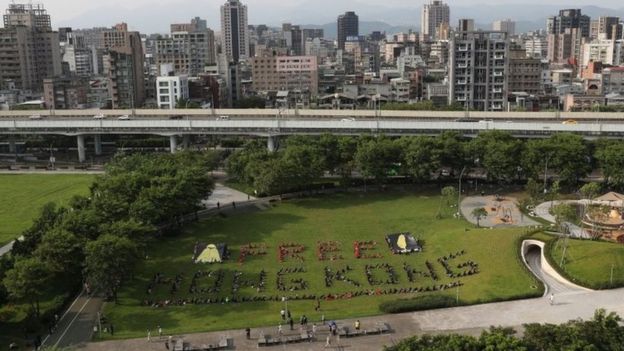 Around 300 students in Taipei formed a human chain to support the Hong Kong protesters in August
Around 300 students in Taipei formed a human chain to support the Hong Kong protesters in August